The Future of Home Health Care Services: Revolutionizing In-Home Patient Care in Chicago
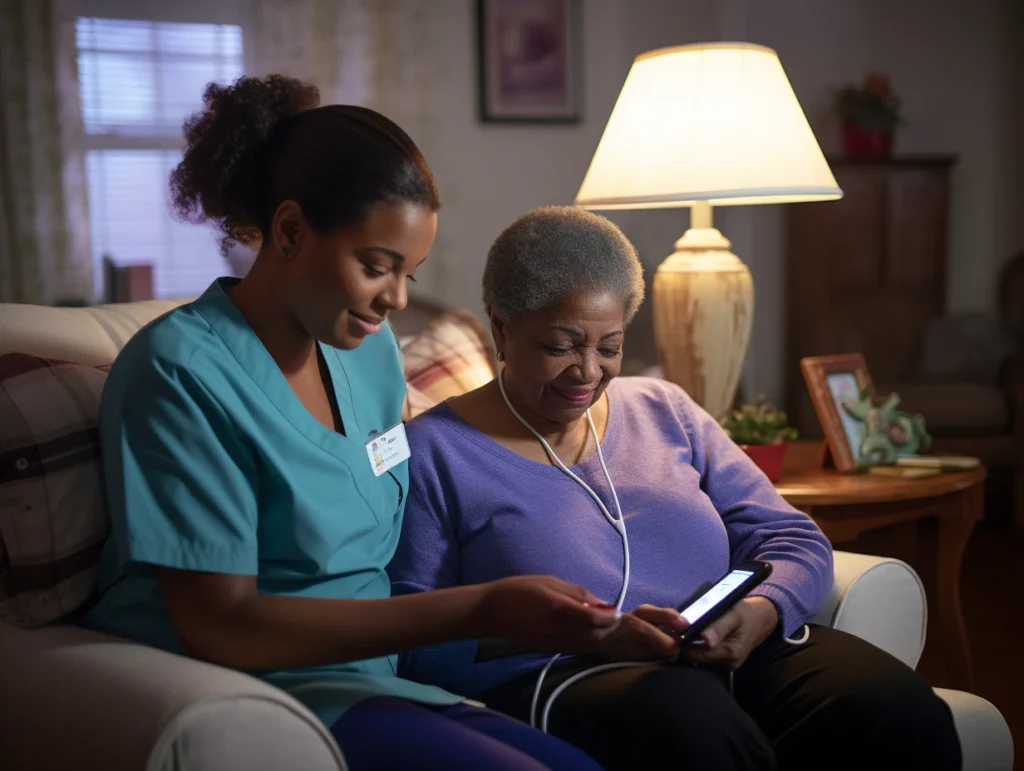
The Future of In-Home Health Care in Chicago
The Future of Home Health Care is rapidly evolving, especially in Chicago, where the demand for personalized, high-quality in-home medical care continues to rise. Initially, home health care was limited to basic support services, but with advancements in telehealth, remote patient monitoring, and specialized treatments, patient outcomes have significantly improved. The growing preference for aging in place, cost-effective care, and chronic disease management has fueled the expansion of these services, making home health care a transformative force in modern healthcare.
Today, home health care services in Chicago encompass skilled nursing, physical therapy, speech therapy, wound care, and post-surgical rehabilitation, allowing patients to recover safely in familiar surroundings. As healthcare policies continue to evolve, the industry is shifting toward integrated patient-centered care models, ensuring greater accessibility, efficiency, and better long-term health outcomes. With an aging population and growing need for preventive home-based medical solutions, the future of home health care in Chicago is set to provide even more specialized, technology-driven, and patient-focused care solutions.
Key Benefits of Choosing In-Home Medical Care

Home health care offers numerous advantages, making it an ideal choice for many families. First, it enhances patient comfort and independence by allowing individuals to receive high-quality medical attention in their homes, reducing hospital stays and minimizing the risk of infections. Additionally, personalized care plans ensure treatments are tailored to individual needs, improving recovery rates and overall health outcomes.
Beyond medical benefits, home health care services provide significant cost savings, as they are often more affordable than long-term hospital care or assisted living facilities. Families also gain peace of mind, knowing their loved ones receive compassionate, one-on-one support from skilled nurses, physical therapists, and caregivers. Moreover, this approach promotes emotional well-being, reduces stress, and strengthens the bond between patients and their families. With increasing demand for aging-in-place solutions and chronic disease management, home health care remains a reliable, patient-focused alternative to institutional care, ensuring holistic, continuous support in a familiar environment.
How Technology is Transforming Patient Care at Home
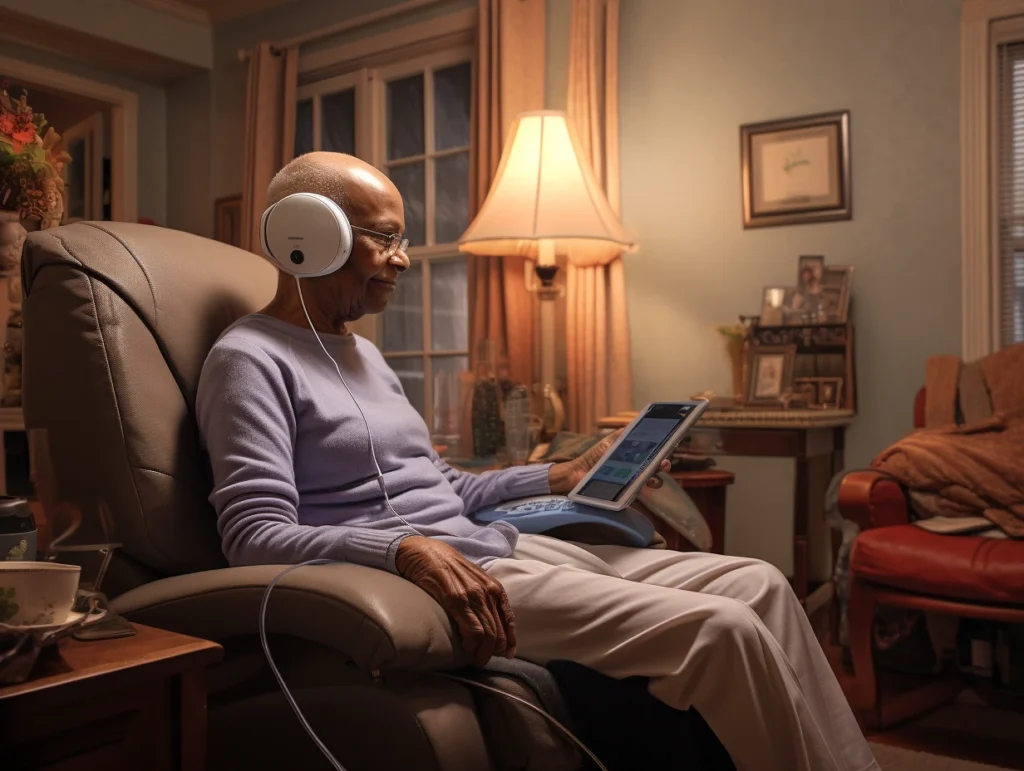
Technological advancements have revolutionized home health care services, making them more efficient, accessible, and patient-centered. Telemedicine enables patients to consult with healthcare providers remotely, reducing unnecessary hospital visits while ensuring timely medical attention. AI-driven diagnostics and electronic health records (EHRs) further streamline patient management, enhancing care coordination among medical professionals.
Wearable health monitoring devices allow real-time tracking of vital signs, alerting caregivers and healthcare providers to potential emergencies. Smart home technology, such as fall detection sensors and voice-activated medical alerts, enhances elderly patient safety, promoting independent living. Additionally, automated medication dispensers and mobile health apps help patients adhere to prescribed treatments, minimizing medication errors.
These cutting-edge innovations not only improve patient care and health outcomes but also optimize workflows for home healthcare providers. As technology continues to evolve, integrating machine learning, robotics-assisted care, and remote patient monitoring will further elevate the quality and efficiency of home health care services in Chicago and beyond.
Challenges and Growth Opportunities in Home Health Care
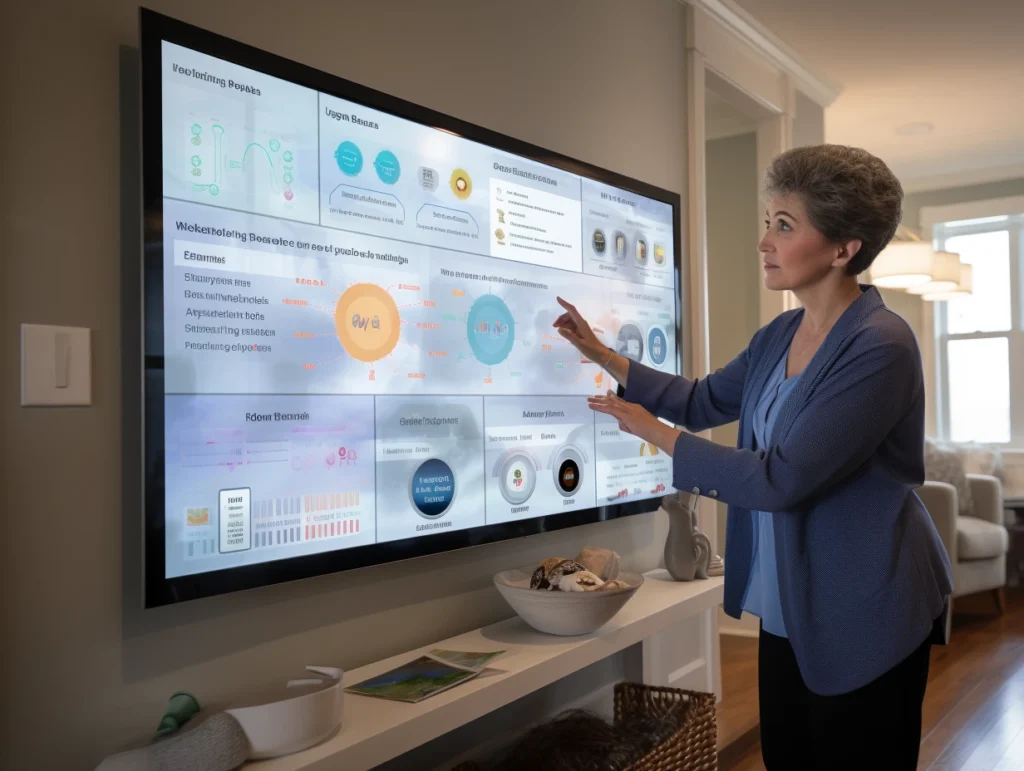
Despite its benefits, home health care services face several challenges. One major issue is the shortage of skilled healthcare professionals, making it difficult to meet the growing demand for in-home patient care. Additionally, insurance complexities and reimbursement limitations can create financial barriers, preventing many patients from accessing affordable home health services.
Regulatory compliance is another concern, as home health agencies must navigate strict policies and licensing requirements that can slow service expansion. However, these challenges also present significant growth opportunities. Expanding training programs for nurses, physical therapists, and home health aides can address workforce shortages, while advocating for better insurance coverage and Medicare policies can improve financial accessibility.
Moreover, AI-driven patient monitoring, telehealth solutions, and advanced healthcare analytics are reshaping the industry, making remote care management and chronic disease treatment more efficient. By embracing these innovations and policy improvements, home health care providers in Chicago can ensure greater accessibility, affordability, and quality care for patients in need.
The Impact of Personalized Care on Patient Recovery
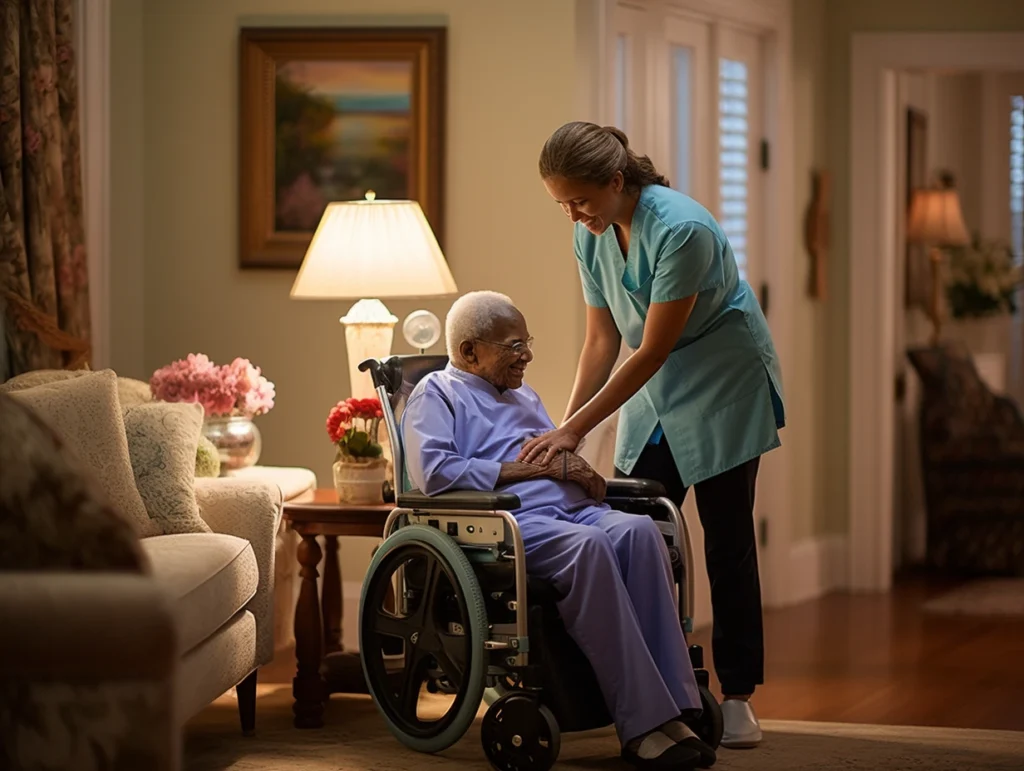
Personalized home health care plays a vital role in patient recovery by addressing individual health needs rather than offering a one-size-fits-all approach. In-home caregivers, skilled nurses, and physical therapists develop customized treatment plans based on medical history, lifestyle, and chronic conditions, ensuring each patient receives specialized attention and tailored interventions.
This patient-centric approach leads to faster recovery times, improved mobility, and enhanced quality of life, particularly for seniors, post-surgical patients, and individuals managing chronic illnesses. Additionally, home health aides and nursing professionals provide emotional and psychological support, reducing stress and encouraging better engagement in treatment plans.
By fostering a strong patient-provider relationship, personalized home health services not only promote better adherence to medication regimens and therapy programs but also empower patients with preventive care education. As demand for individualized in-home healthcare grows in Chicago, integrating data-driven patient monitoring, holistic wellness strategies, and personalized rehabilitation programs will further enhance long-term health outcomes and patient satisfaction.
Why Skilled Professionals Matter in Home-Based Healthcare

The success of home health care services largely depends on the expertise and dedication of highly skilled healthcare professionals. Registered nurses, licensed practical nurses, physical therapists, occupational therapists, and certified home health aides provide critical medical support, ensuring that patients receive personalized, high-quality care tailored to their needs. Their role extends beyond basic medical assistance—they also offer comprehensive patient education, rehabilitation support, and emotional guidance, helping families manage complex health conditions effectively.
With Chicago’s aging population and the increasing need for in-home chronic disease management, the demand for qualified home health professionals is at an all-time high. These experts help with medication management, mobility support, post-operative care, and specialized treatments, making it possible for patients to recover safely and comfortably at home. Additionally, ongoing workforce training, professional development programs, and technological integration in home health services are crucial to ensuring that healthcare providers deliver the best possible care while adapting to emerging healthcare trends.
Investing in home health workforce development will not only bridge the current caregiver shortage but also improve patient outcomes, caregiver retention, and overall healthcare efficiency. As home-based medical services continue to evolve, enhancing the skills, knowledge, and availability of healthcare professionals will remain essential to delivering compassionate, high-quality in-home care across Chicago and beyond.
Innovations Shaping the Future of In-Home Care
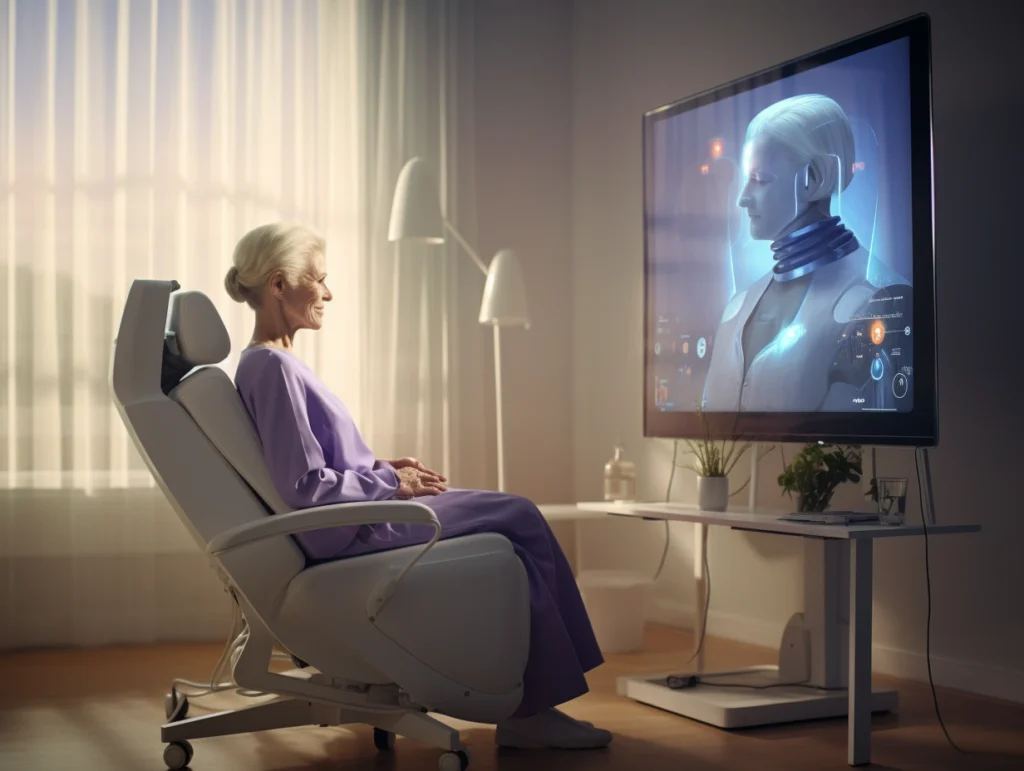
The future of home health care services is being shaped by cutting-edge innovations that enhance efficiency, accessibility, and patient-centered care. Artificial intelligence (AI) in home health care is revolutionizing patient monitoring by predicting health trends, detecting early warning signs of chronic diseases, and allowing proactive medical interventions. AI-powered chatbots and virtual health assistants also provide 24/7 support for patients and caregivers, improving engagement and adherence to treatment plans.
Mobile health (mHealth) apps are empowering patients to manage their conditions with real-time tracking, digital consultations, and medication reminders, reducing unnecessary hospital visits. Additionally, robotic-assisted care solutions are making strides in assisting elderly and disabled patients with daily activities, ensuring greater independence and mobility at home. Smart home automation, including fall detection sensors and voice-activated medical alerts, enhances patient safety and reduces emergency risks.
With remote patient monitoring, telehealth advancements, and AI-driven healthcare analytics, home health services in Chicago are evolving into a more efficient, technology-driven, and patient-friendly system. These emerging trends ensure that quality medical care is accessible from home, reinforcing Chicago’s leadership in healthcare innovation and setting new standards for the future of in-home medical care.
The Role of Community in Quality Home Care Services

Strong community support systems play a crucial role in enhancing home health care services by ensuring patients receive comprehensive, holistic, and personalized care. Local organizations, volunteer groups, and healthcare institutions provide essential resources that make in-home medical care more effective and accessible. Community-based initiatives such as meal delivery programs, transportation assistance, and caregiver support groups help ensure that seniors, disabled individuals, and chronically ill patients receive the support they need.
Additionally, family involvement and local health networks contribute to emotional well-being, social engagement, and improved patient recovery rates. Collaborations between home healthcare providers, community centers, and nonprofit organizations help bridge gaps in affordable home care services, ensuring that even low-income families can access quality, patient-centered care.
By strengthening these support systems, Chicago can foster an inclusive healthcare ecosystem where home health care services are more accessible, affordable, and community-driven. The integration of social services, mental health resources, and outreach programs will continue to play a pivotal role in ensuring better patient outcomes and long-term wellness for those relying on in-home medical care.
Conclusion: The Future of Home Health Care in Chicago
As home health care services continue to evolve, Chicago stands at the forefront of implementing patient-focused, technology-driven healthcare solutions. The integration of innovative medical advancements, skilled healthcare professionals, and strong community support networks ensures that patients receive high-quality, compassionate care within the comfort of their homes. With an increasing emphasis on aging in place, chronic disease management, and post-surgical rehabilitation, home health care is becoming a critical component of modern healthcare systems.
Moving forward, raising awareness, improving workforce training, and expanding insurance coverage will be key to making home health services more accessible and affordable. Additionally, the use of artificial intelligence, telemedicine, and remote patient monitoring will continue to enhance efficiency, patient safety, and overall care coordination.
Home health care is no longer just a convenient alternative—it is a transformative force shaping the future of healthcare, delivering personalized, cost-effective, and high-quality solutions that promote comfort, independence, and better long-term health outcomes. By embracing these advancements, Chicago’s home healthcare industry will continue to set new standards in patient care, ensuring that individuals receive the best possible treatment in the most supportive environment.
Book your in-home healthcare appointment.
Ready to start? Fill out the form below, and our experts will help you or a loved one find the correct services.
